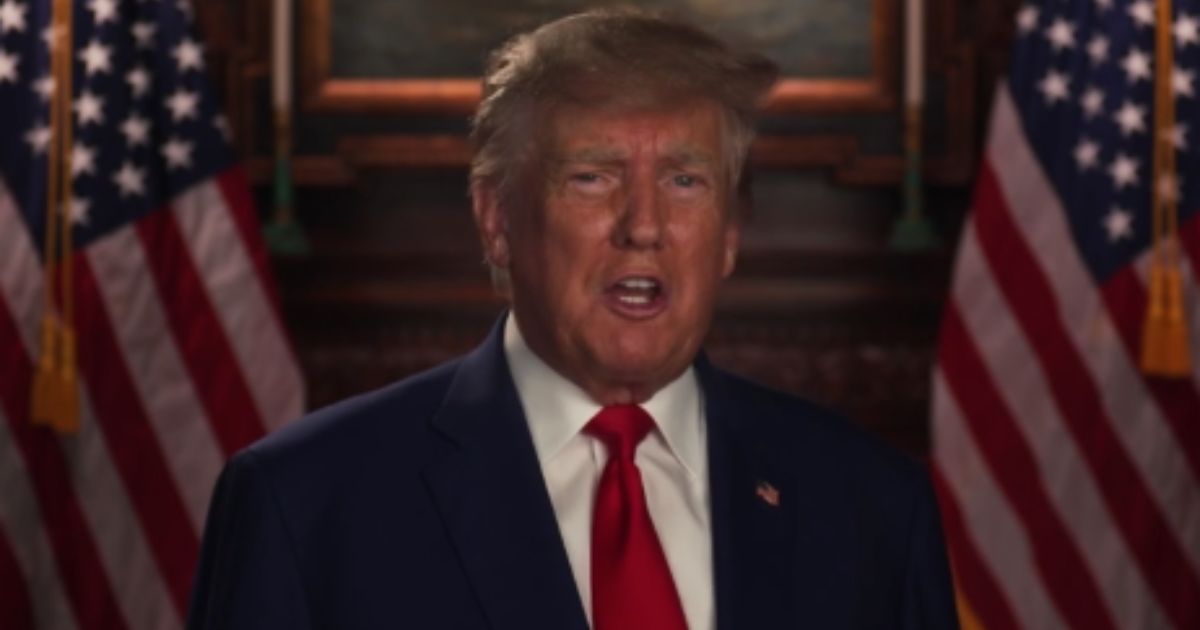Trump's authority challenged in high court immigration case
A high-stakes legal battle over President Donald Trump's deportation authority reaches the nation's highest court as his administration challenges lower court rulings blocking removals.
According to Fox News, the Trump administration submitted its final brief to the Supreme Court on Wednesday, arguing that federal judges are undermining the president's constitutional powers to protect national security through their repeated injunctions against his immigration policies.
The case centers on Trump's unprecedented use of the 1798 Alien Enemies Act to deport Venezuelan nationals accused of gang affiliations. This centuries-old law has only been invoked three times before - during the War of 1812, World War I, and World War II.
Administration Claims Judicial Overreach Threatens National Security
U.S. Acting Solicitor General Sarah Harris emphasized in Wednesday's filing that district courts cannot broadly restrict the president from carrying out fundamental duties. The administration's legal team outlined what they describe as a concerning pattern of judicial interference with executive authority.
The Justice Department specifically called for the Supreme Court to overturn rulings by U.S. District Judge James Boasberg and the D.C. Circuit Court of Appeals. These lower court decisions effectively halted the administration's deportation efforts targeting alleged members of the violent Tren de Aragua gang to El Salvador.
White House officials have grown increasingly frustrated with what they view as judicial activism blocking key elements of Trump's agenda. Press Secretary Karoline Leavitt characterized the lower court rulings as unauthorized infringement on presidential powers.
Legal Battle Over 225-Year-Old Immigration Law
Plaintiffs challenging the deportations argue that the administration's reliance on the 1798 law is legally flawed. Their attorneys contend that the statute only permits immediate removals during formally declared wars or foreign invasions - conditions they say do not currently exist.
The rarely-used 18th-century law has emerged as a critical focus of the case. Legal experts note its extremely limited historical application, having only been implemented during three major conflicts in U.S. history.
Both sides have now completed their Supreme Court briefings, setting the stage for the nine justices to issue a potentially landmark ruling on executive immigration authority.
District Court Judge Criticizes Administration's Deportation Tactics
Judge Boasberg's initial temporary restraining order came after what he characterized as secretive and rushed deportations that denied migrants proper legal recourse. He later issued sharp criticism when administration officials failed to disclose the full scope of removals carried out.
The administration's actions raised serious due process concerns among the D.C. Circuit judges who voted 2-1 to maintain the block on deportations. Circuit Judges Karen Henderson and Patricia Millett specifically focused on the risk of irreparable harm to migrants deported under the law.
Questions remain about whether officials knowingly violated Boasberg's bench order by failing to recall flights already departed for El Salvador on the night he issued his ruling.
Growing Tensions Between Executive and Judicial Branches
Harris warned the Supreme Court that the "tide of injunctions" from district courts threatens to paralyze executive authority. She noted that lower courts have issued over 40 injunctions or temporary restraining orders against the administration in just the past two months.
The administration argues these judicial interventions are destabilizing the president's foreign policy powers and, paradoxically, preventing migrants from properly challenging their removal designations through legal channels.
White House officials maintain that swift Supreme Court action is needed to protect constitutional separation of powers and the president's authority to ensure national security.
Case Status and Next Steps
The Supreme Court now has complete briefings from both the administration and plaintiffs challenging the deportations. The nine justices must weigh complex questions about executive power, judicial oversight, and the modern application of a 225-year-old law.
The Trump administration is seeking both an immediate administrative stay to resume deportations and a broader ruling affirming presidential authority under the Alien Enemies Act. They argue the escalating tensions between executive and judicial branches require urgent Supreme Court intervention.
The outcome of this case could have significant implications for executive immigration powers and the ability of federal courts to check presidential authority through nationwide injunctions.





